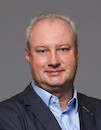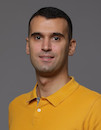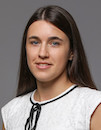Laboratory of Electrical Engineering Systems and Technology 2
Laboratory exercises
Course Description
Study Programmes
University graduate
General Competencies
This course will provide students with specific knowledge on experimental measurement methods, and will develop their skills in analysis, simulation are experimental testing. Experimental research in the development of electrical systems.
Learning Outcomes
- identify test object
- select necessary measurement equipment
- distinguish necessary measurement methods
- interpret measured results
- use electrical machine mathematical model
- combine modeling and measurement results
- illustrate possible alternatives to standard measurement
- write test protocol
Forms of Teaching
In the first cycle thee will be 3 lectures on Department of Fundamentals of Electrical Engineering and Measurements. In the second cycle there will be 3 lectures on Department of Electric Machines, Drives and Automation
ExamsA brief review of knowledge: in the first cycle will be a flash in the second cycle 1 flash
Laboratory WorkIn the first cycle thee will be 6 lab exercises on Department of Fundamentals of Electrical Engineering and Measurements. In the second cycle there will be 6 lab exercises on Department of Electric Machines, Drives and Automation
ConsultationsPossible after each lecture
Grading Method
| Continuous Assessment | Exam | |||||
|---|---|---|---|---|---|---|
| Type | Threshold | Percent of Grade | Threshold | Percent of Grade | ||
| Laboratory Exercises | 0 % | 80 % | 0 % | 80 % | ||
| Homeworks | 0 % | 10 % | 0 % | 10 % | ||
| Quizzes | 0 % | 6 % | 0 % | 6 % | ||
| Mid Term Exam: Written | 0 % | 3 % | 0 % | |||
| Final Exam: Oral | 1 % | |||||
| Exam: Oral | 4 % | |||||
Comment:
All laboratory exercises are mandatory, no oral or written exam.
Week by Week Schedule
- 1st lecture - Introduction to laboratory exercises and laboratories
- 1st lab exercise - Electrical measurement 1
- 2nd lab exercise - Electrical measurement 2
- 3rd lab exercise - Electrical measurement 3
- 4th lab exercise - Electrical measurement 4
- 5th lab exercise - Electrical measurement 5
- 6th lab exercise - Electrical measurement 6
- Mid-term exam
- 7th lab exercise - Industrial system dynamics 1
- 8th lab exercise - Industrial system dynamics 2
- 9th lab exercise - Industrial system dynamics 3
- 10th lab exercise - Industrial system dynamics 4
- 11th lab exercise - Industrial system dynamics 5
- 12th lab exercise - Industrial system dynamics 6
- Final exam


 Pristupačnost
Pristupačnost






